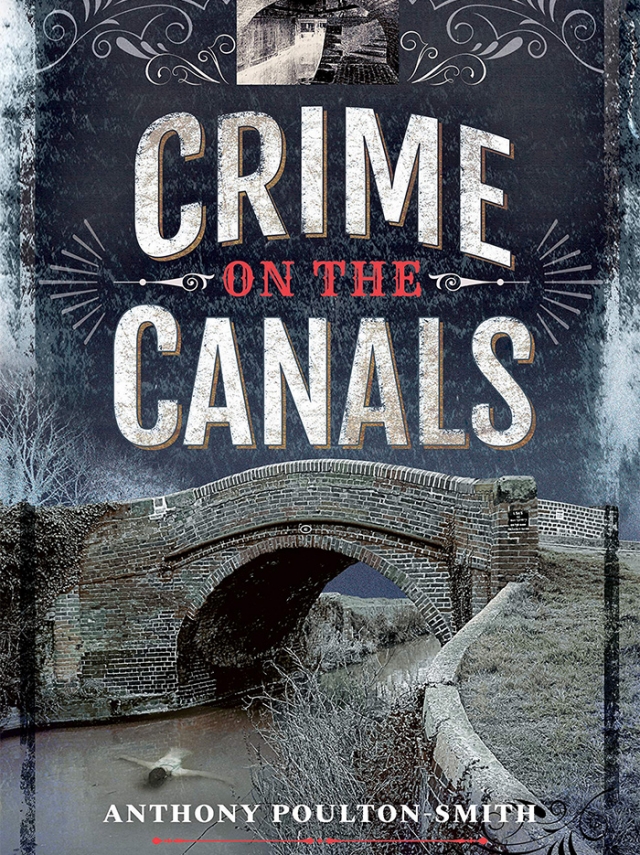Crime on the Canals
Book Review

Crime on the Canals, Anthony Poulton-Smith, Pen and Sword, 2019, 120p, £12-99. ISBN 9781526754783.
This interesting book is presented as an exposure of criminality on the canal system, and it does achieve that objective rather well.
It has to be said that it is more about crime than canals, although the example of the Bushell family mooring a boat at Minworth from which ninety pounds of coal was unloaded and deposited in an adjacent garden is amongst some splendid examples that do amply illustrate the link between canal users and crime.
My enthusiasm for this book has been especially aroused by the selected range of court cases from 1826-1949. We can use Anthony’s research into these cases to explore a different world from our own, where science was basically unavailable to the court system. This meant that what might seem to us to be a clear example of guilt would be set aside by a jury as providing insufficient certainty of guilt.
John Turner’s death in 1857 illustrates this rather well. His severely mutilated body was retrieved from the Regent’s Canal. Witnesses commented that it was difficult to believe that his injuries could have been caused by a boat and circumstantial evidence revealed that he was experiencing a variety of personal tragedies, which led the coroner to record an open verdict because there was a possibility that he might have committed suicide, although this was not a certainty. However, the doctor’s report indicated that his injuries had been caused by a sharp implement and a powerful blow. Whilst there had been a further search of the scene, nothing relevant had been found. In modern times a police assessment of where the body had entered the water, assisted by DNA evidence and mathematical calculations might have yielded further evidence which might then have pointed to a third party’s involvement.
In this case, as Anthony indicates, John Turner’s family remained unconvinced by the verdict but this had occurred in a world where our modern opportunities for evidential examination just did not exist. This is a valuable snapshot into that former world.

